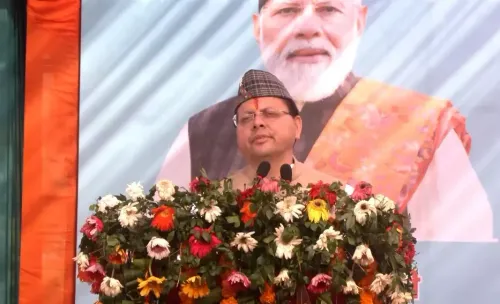Foreign Investment Returns in December, RBI's Rate Easing Expected to Commence in February

New Delhi, Jan 13 (NationPress) The environment is becoming conducive for interest rate reductions in India, and the Reserve Bank of India (RBI) is likely to initiate its easing cycle starting February, according to a report published on Monday.
The central bank's neutral policy stance provides it with the flexibility to implement rate cuts.
Food inflation, which has been a significant barrier to rate cuts, is projected to decrease due to robust agricultural production, as per a report by Crisil Intelligence.
While monetary easing is occurring in numerous key economies, there is growing uncertainty regarding the magnitude of these rate cuts. Trump's election victory raises concerns over potential tariffs that may amplify inflationary pressures, coupled with tax reductions that could contribute to fiscal strain.
In India, domestic financial conditions saw a slight improvement month-on-month in December. The CRISIL Financial Conditions Index (FCI), an indicator reflecting parameters from India’s major financial markets, increased to 0.5 from 0.4 in November.
Foreign portfolio investors (FPI) returned to Indian markets in the early part of December as US treasury yields declined.
This resurgence buoyed equities and supported lower domestic yields. Falling crude oil prices were favorable for inflows into oil-importing nations like India, as noted in the report.
Domestic liquidity tightened despite the RBI's reduction of the cash reserve ratio (CRR) due to heightened currency demand during the festival season and tax outflows.
The tighter liquidity situation led to an increase in money market rates. A rise in bank credit growth provided some support to domestic liquidity.
Indian equities experienced gains for the first time in December after three months of decline. The benchmark BSE Sensex and Nifty 50 saw increases of 1.5 percent and 1.1 percent on average, respectively.
The indices rose in the initial half of the month, driven by expectations of greater government expenditure and positive global indicators such as the decline in crude oil prices.
The NSE volatility index (VIX) fell to an average of 14.0 in December from 15.3 in November, indicating reduced volatility, according to the report.









